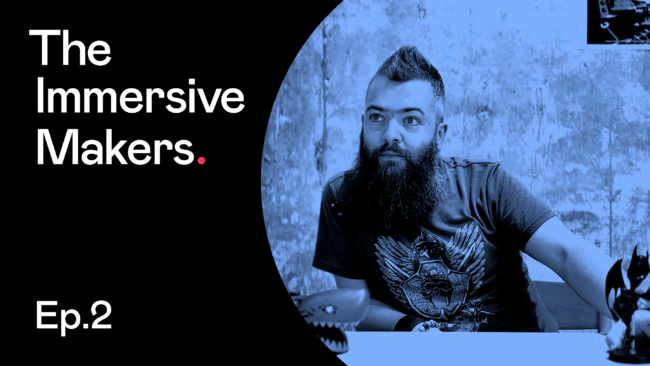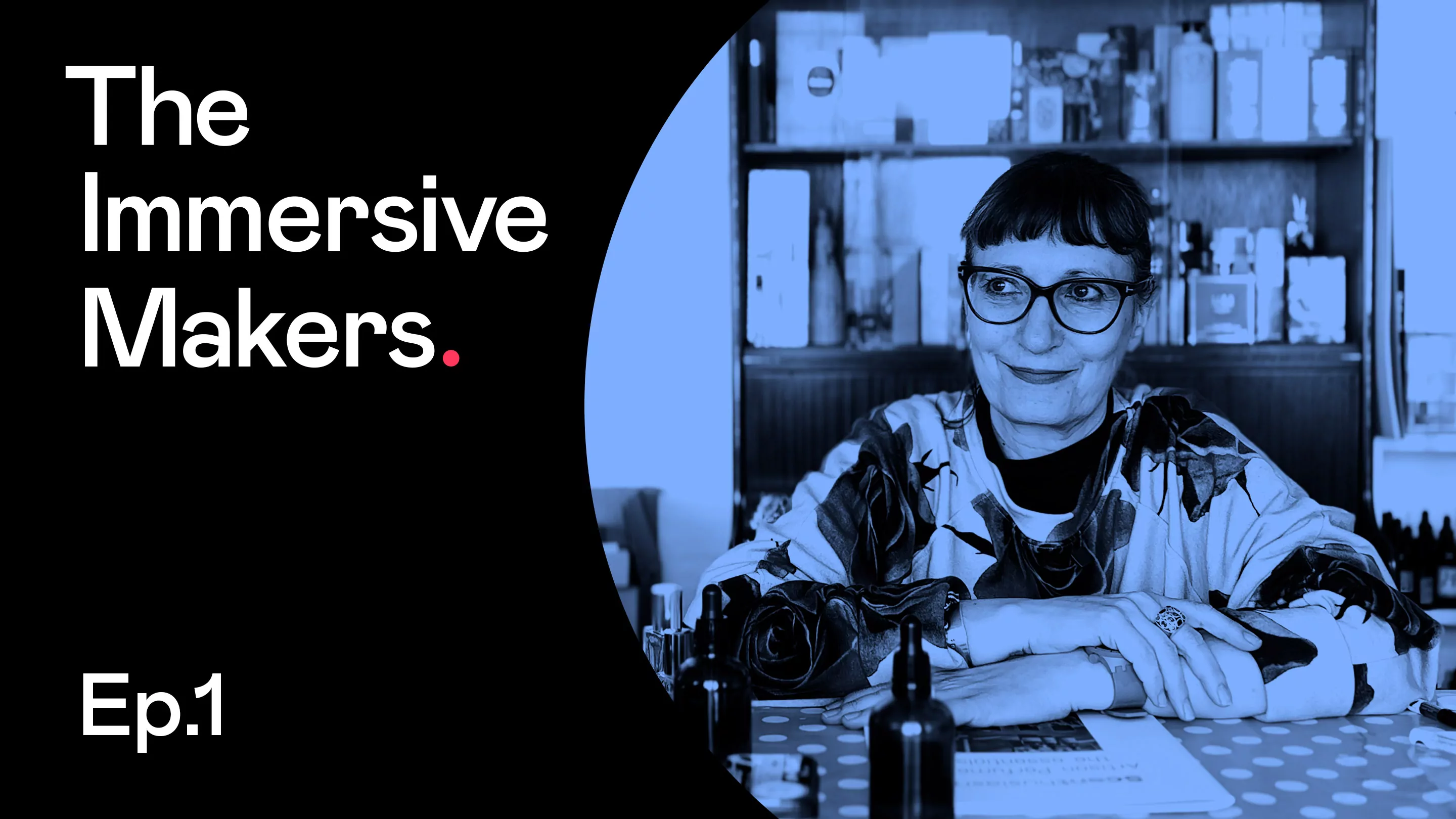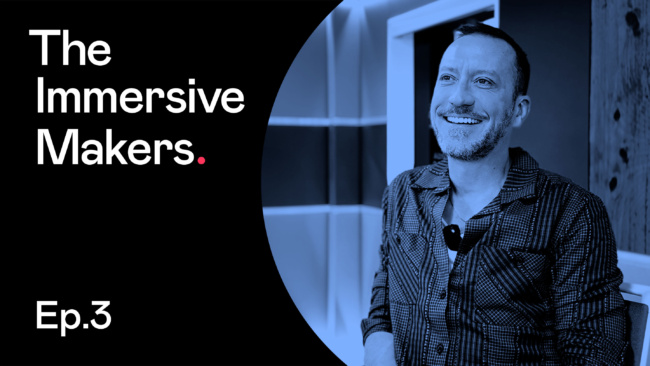
Musings from creators on what ‘immersive’ means to them, to inspire brand builders everywhere.
Introducing The Immersive Makers
Every day each of us connects with the world at large. From emotive design to technological experiences, new dimensions impact us, changing our connections and taking us on a journey in different directions.
Which is why at Coley Porter Bell, we are talking to people at the forefront of creating and designing immersive experiences for a range of sectors and audiences.
This series of interviews will unpack how these creators build distinctive, intelligent ways to engage audiences and share how brands can tap into immersive experiences to create better relationships with their consumers.
Sarah McCartney, Perfumer
Our first interviewee is Sarah McCartney, the perfumer behind 4160 Tuesdays. With a wealth of experience and an unrelenting passion for perfumery, Sarah has been pushing the boundaries of scent creation for over a decade. Prior to founding 4160 Tuesdays, Sarah was the head writer at Lush for 14 years, at a time when the cosmetics company grew from four stores in the UK to 700 worldwide. Her transition from writing to perfumery reflects her innate ability to craft compelling stories, in whatever form they take.
In our conversation with Sarah we dive into her creative process and her unique approach to crafting fragrances that transcend the ordinary. Sarah’s journey is a testament to the idea that immersive can take many forms, from visual and auditory to olfactory, and beyond.
Watch or read the full interview with Sarah below and discover her inspirations, artistic process, and the challenges she’s faced in bringing her immersive visions to life.
Stay tuned for more conversations with makers as our series unfolds.
Tell us a bit about yourself.
I make perfume. I make a perfume on a very, very small scale handmake the lot of it here in Hammersmith. And I wrote a book about a perfumer who made fragrances to get people through tough times by making something that reminded them of a pleasant time. And I thought, wouldn’t it be lovely if I could just have a list which said, oh, and that smell of David’s grandfather’s shed is this, and the smell of the beach is that and the smell of that. So I did an awful lot of perfume shopping before I realized none of these things existed.
It’s a bit like if I wanted myself a pair of orange elephant cord flares and I went into a shop, say in the 90s, and said, right, I would like flares, and they go, no. Orange? No. Cord? No. They just didn’t exist. Me being from my let’s make it myself school of education, I went and to see if I could buy the materials and read some books and put them all together myself. So that’s what I started out doing, was making the fragrances which were in the little book.
Where do your ideas come from?
The problem with getting ideas for fragrances is that it’s more like I have to shut the doors and bolt them to keep the ideas from flooding in. There are so many things I would like to make it’s really deciding which ones I’m going to develop next.
I smelt a rose at the weekend in Walpole Park in Ealing and anyone who goes out for a walk with me knows a certain point they’ll just turn around and go, where’s she gone? Oh, she’s in a tree. There’ll be so many things to smell. I smelt this rose and it smelt of marmalade. So now I’ve got on my list the marmalade rose.
But otherwise, it’ll be some conceptual thing. And other times there’ll be just one new material that I smell. I think I need to have that at the centre of something. I need to create something around this, because this thing is marvelous.
How do you turn your ideas intro reality?
It’s a really tricky one in perfumery because people would love a shortcut. You have to have done a lot of work beforehand to know which materials you might pick. If you put two perfumery materials together, you might get something completely unexpected. You add another one in and it’ll boost the first one. Like large child jumping onto a bouncy castle or something, and the others fly off. Or one of them might disappear.
Tell us about your collaboration with Tereza Stehilokova.
She took over Black’s Club in Soho and recreated William Morris’s trip to Iceland from the 1860s. I had to fragrance different parts of the house to illuminate different parts of the journey. The multisensory chef Charles Michel did a very extravagant meal. The smell of the sea was wafted around people as they sat at the dining table blindfolded.
I’ve done something else with Tereza as well since then. We built Ophelia in Exile in a recreation of what if during lockdown, you were actually trapped inside the computer. So I had to make the aroma of the countryside as it would be made by people who’ve forgotten what countryside actually smells like.
So at first you think, oh, that’s nice. Then you go, oh, that’s a bit odd.
How different is creating scent for experiences vs people?
It’s a difference between friends and partners. If you’re going to wear a perfume, have it that close to you, it has to be something that you’re really fond of. Whereas a room fragrance, you can walk in, experience it and walk away again. And it’s very nice, but it can be a little bit more adventurous. So with these things, it’s a room fragrance. Plus it’s meant to make you feel something different from normal. So we can go extra adventurous while still making sure that it doesn’t freak people out completely. Because the sense of smell is really there to check that you’re safe.
Can scent tell stories?
Yes, I’d say that what I do is storytelling in scents and I think it’s very handy having moved from writing and just taking that into me. So now I do something that’s invisible and intangible, but you can experience it at the time. But I like mine to have stories. There’s a reason, even if the reason one of them came into being was because what I was trying to do was demonstrate how to be adventurous with patchouli for my students, it’s still got a reason, it’s still a story.
Is scent undervalued?
Scent is curious in that it is regarded in some ways as being very frivolous and all about vanity and not essential. And it’s not seen quite often as one of the arts. But people are very uncertain about introducing aromas into places in case something scary happens, because it’s invisible. It’s almost like you’re asking, can I bring a ghost in with me? It’s not scary. You know, it’s quite friendly and most people won’t notice.
People don’t really know whether to answer yes or no because they’re just not sure because it hasn’t been done. So I think, bring it.
I had a student in once, it was just a one-day workshop. We were handing the strips around. I said, what do you think this is? And somebody said hotels. And it was vanilla. Because vanillin is calming for most people. Most people feel comforted and calmed by the aroma of basic cake. Once you know that that’s what a lot of hotels do, that they fragrance the foyer with vanilla to try and calm people down when they’ve just finished their journeys. So that becomes part of our consciousness, and we smell it again, we think, hotel. So hotels and offices are places which are trying to bring aromas into their own space and having their own brand aroma.
What advice would you give someone creating an immersive experience?
I’d say that if you are going to think about a multisensory experience, don’t forget the smell. We did one once, scented an opera, but had forgotten that the kitchen next door was going to be cooking cabbage soup to serve everybody that evening. Which completely changed our intention.
I would say, just to remember that everything influences the way that you feel. The more we’re doing the neuroscience into how the brain reacts, the more we know that we don’t just see, we don’t just hear. And certainly, flavor is like half taste and half smell. People learnt that during COVID they thought they’d lost their sense of taste. Actually, it was their sense of smell, the retro nasal olfaction. So people started to appreciate it a bit more when they got it back again.
We genuinely don’t realize how much we use our sense of smell. And that means that we don’t realize how much, if we take control of what something smells like, how much extra we add to that occasion. Yes, they all work together. Don’t forget about your nose.

